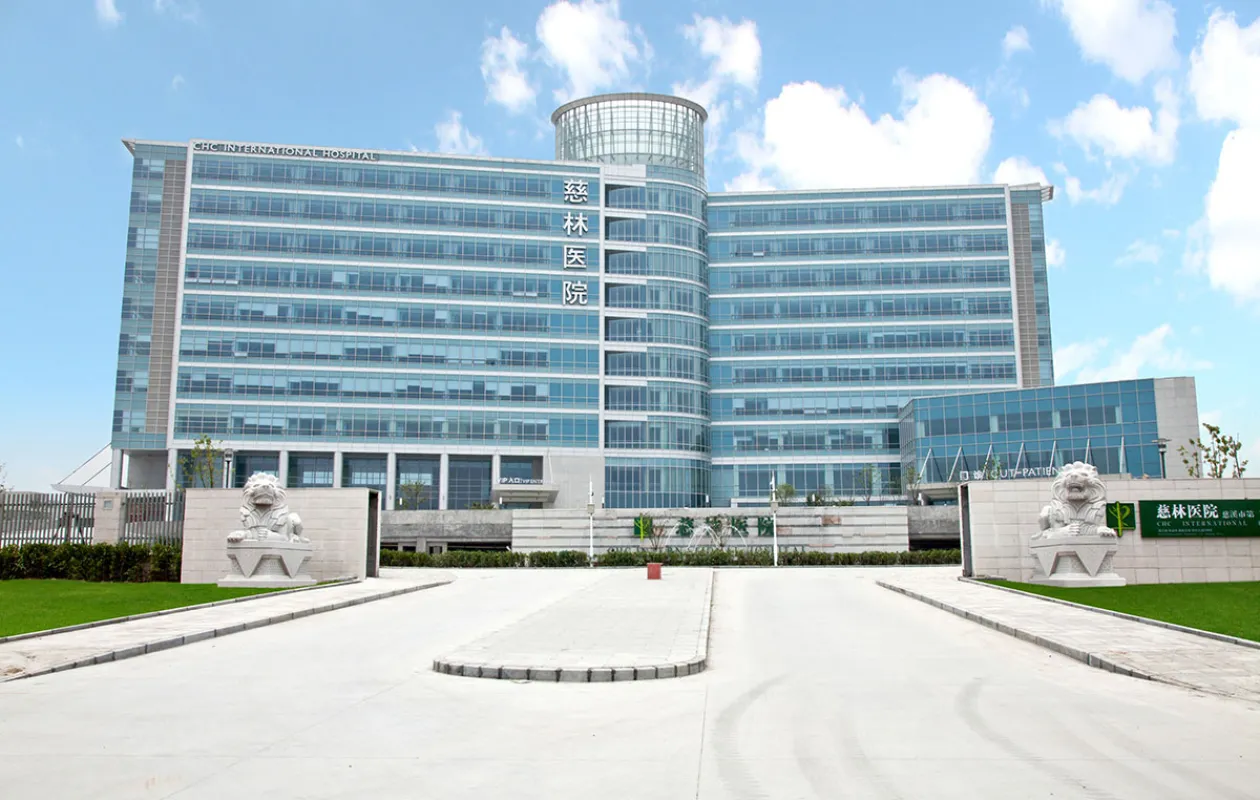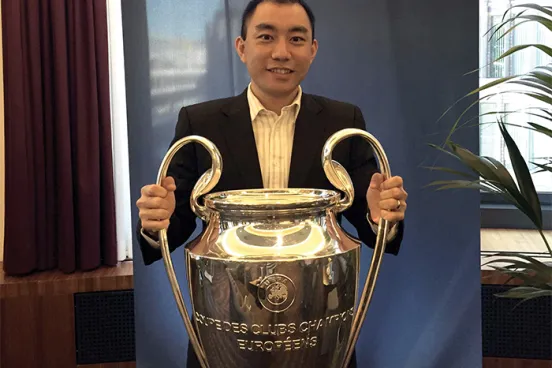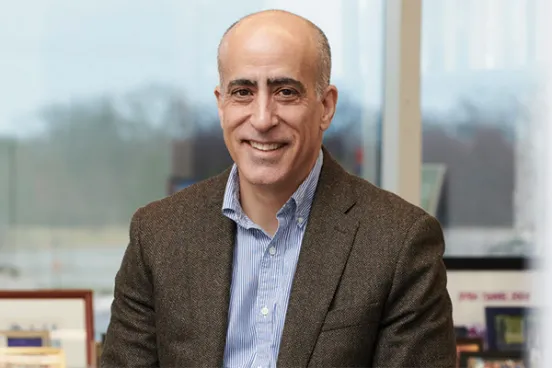Seth Yu’s work puts him at the forefront of a trend: Western health care companies opening private hospitals in China for Chinese patients. The challenges facing these companies in the world’s most populous country are vast. But so are the opportunities.
Good people beget good people, says the tagline in Seth Yu’s email signature—a quote from the founder of the company for which he works. If changes in China’s health care system progress as Yu predicts, a corollary might be: Good hospitals beget good hospitals.
Yu, LLM ’08, is on the front lines of a massive change that is just beginning to occur in the Chinese health care system: the opening of hospitals in China, for Chinese citizens, by Western companies. As a member of the executive managing committee of Chinaco Healthcare Corp. (CHC) International Hospital in Cixi, China, Yu helps to make major decisions about hospital operations, staffing, and more. As chief compliance officer and chief administrative officer of CHC Healthcare, he is responsible for the design and implementation of compliance programs involved in system expansion, mergers and acquisitions, and supply chain.
The hospital itself is groundbreaking. With 500 beds and about 1,500 daily outpatient visits, it is the first U.S.-China joint venture general hospital for the mainstream Chinese population. “There have been small Western hospitals in Beijing, Shanghai, and Guangzhou since the 1990s,” Yu says, “but they are almost exclusively for Western expats or super-rich Chinese.”
And while CHC is the first, it certainly won’t be the last—a dramatic change for a country where, as of 2010, private hospitals represented only 6.5 percent of the market. “Several U.S., UK, and German companies are in the process of opening general hospitals all over China for Chinese people,” Yu says.
In that way, good hospitals could indeed beget good hospitals. “Hopefully in response to our hospitals,” Yu says, “local competitors will have to raise their game to a new level to remain competitive, which in the end will benefit the people.”
Reform and Opportunity
The growth is, in large part, the result of a 2009 health care reform package in China, which has the goal of providing near-universal insurance coverage, increasing spending, and upgrading facilities. The reform came about in part because of a demand from the public for better health care.
“They are much better off economically than 20 years ago, so naturally they want the quality of health care services to match their economic growth,” says Yu. His company was eager to be a part of providing those services, Yu says. CHC was founded in 2008 by Dr. Thomas Frist Jr. and his family, which also founded Hospital Corporation of America (HCA), the world’s largest private operator of health care facilities, in 1968.
Health care reform in China, according to a 2010 report by the global management consulting firm McKinsey and Co., encompasses “ambitious” goals: to establish a basic, universal health care system that can provide safe, effective, convenient, and low-cost services to all of the country’s more than 1.3 billion citizens.
The McKinsey report predicts that the trend of foreign hospitals will continue to develop, but the extent of development depends in part on the role of insurance companies. Right now, insurance companies only pay less than 1 percent of the market share in China.
China hopes to learn lessons from health care reform in the United States, the United Kingdom, and elsewhere “in order to provide adequate and quality health care to its massive population,” Yu says. “They want to learn from companies like CHC,” he adds, about how to increase operational efficiency through shared services, how to take advantage of state-of-the-art hospital information systems, improve the quality and safety of medical services, and create for-profit organizations that are committed to the common good of the society.
Among the changes brought on by health care reform is that doctors now can practice at more than one facility. Making physicians more mobile and easier to recruit, the McKinsey report says, would allow private hospital operators to reach more patients—including those at facilities such as the CHC International Hospital. Additionally, according to a report in Modern Healthcare, private hospitals now are being considered for inclusion in public health insurance networks on the same terms as public hospitals.
It’s easy to see why Western companies would want to open facilities within this new framework in China. According to the McKinsey report, the market—which was estimated at $240 billion, about 5 percent of China’s GDP, in 2010—could exceed $600 billion within 10 years.
Challenges and the Road Ahead
Opening health care facilities in China, however, presents many challenges. While the health care systems in China and in the United States have some similarities, Yu says, they are different in important ways. For instance, doctors in China are employed and limited by a system that originated from the Soviet era. Government insurance (comparable to Medicare or Medicaid) keeps the price for service extremely low. Many hospitals in China are “grossly outdated,” though a few new ones are “very impressive,” Yu adds.
A challenge for CHC and other companies, he says, is localization. “Dr. Frist always tells us that health care is local. Originally our hospital executives were all expats that knew a lot about hospitals in the United States or Hong Kong but much less about Chinese hospitals and the mainstream Chinese population,” Yu says. “Now they have all been replaced by local hires.”
Yu’s work as a compliance officer in particular, he says, “is extremely challenging or even risky.” For example, kickbacks are common in almost all aspects from drug sales, equipment sales, patient referral, surgical operations, and logistics, he says. “Eradication of corruption takes a systematic approach that includes all of the governments, pharmaceutical companies, medical device companies, providers, and patients. Until the whole system is cleaned up, all of the players face tremendous challenges and exposures.
“Luckily for me, though, patient-centered hospitals are less likely to be involved in corruption than sales-centered enterprises,” Yu adds.
Yu left a job in Nashville as associate general counsel for the state’s Human Rights Commission to take the position with CHC. The decision to leave Tennessee for China ultimately was an easy one, he says, because of the impact he can have in his home country—where, incidentally, his parents both worked as physicians in public hospitals.
“Being a positive force to improve health care for thousands and potentially millions of patients,” he says, “is a once-of-life opportunity.”








